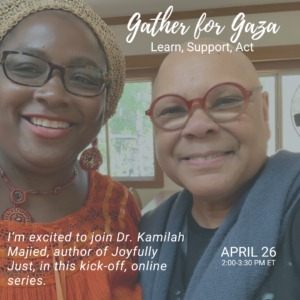Why Genocide
Dear friends,
I deeply appreciate the comments I have received from my last blog post, those of you who felt affirmed and particularly those of you who questioned my use of the term genocide. To engage in a semantic debate on the use of the term genocide would not be as useful as sharing a bit more context around what compelled my writing and inviting all of us to keep learning.
The word genocide rolled effortlessly off my tongue. Perhaps it’s because the images of bombing defenseless men, women and children are ceaseless and heart shattering. Perhaps as a 75-year-old African American woman and descendant of chattel slavery and continued systemic oppression in this country, I recognize the pain pattern of dominance and subordination and intent and impact in what’s happening, as described in my book Mindful of Race: Transforming racism from the Inside Out, and I know the generational impact and hate-fuel of such harm. Another reason perhaps is the chilling Al Jazeera read: the International Court of Justice (ICJ) hears South Africa’s genocide case against Israel over Gaza war in the International Court of Justice, reporting on “…an 84-page document with the court detailing acts it says amount to genocide in Gaza. Another influence in the use of this term genocide was a report commissioned by the United Nations which headlines “A top U.N. court says Gaza genocide is ‘plausible’ but does not order cease-fire.” My perspective was further informed by Tim Wise’s critique on this conflict. Mr. Wise, who is Jewish, is a respected author on antiracism and a professional who understands systems and structural racism. Drawing from this, my life’s work in understanding and dismantling racism, and other sources, some of which are intuitive, my soul cried out in my blog to all people of compassion to broaden understanding.
I’m still learning, but here’s what I know: The senseless murder of tens of thousands by any other name would be just as awful. The Webster definition of genocide may have one definition, but it has many meanings. Instead of a semantic debate, I invite us all to turn our attention toward considering what compassion and wise action would look like as we hold in our hearts the children, women, and men who are dying of starvation, living in rubble and squalor while still being bombed. We can do more than witness in disgust or judgment the widespread loss of life, systemic deprivation, obstruction of aid, and egregious violations of human rights. I would like to also believe that supporting Gaza is not interpreted as antisemitic, but I may not have this luxury. My karmic responsibility is to understand and tend to the profound repercussions such atrocities have on the global well-being of present and future generations – one act and ouch at a time.
Please know that I recognize that there are massive senseless deaths all over the world happening today, in Haiti, Sudan and Congo and many other places. And I do not condone the October 7 killing of innocent people in Israel. I send my prayers and compassion to all those who suffer, including ourselves, as no suffering of our fellow beings fails to impact us.
If your heart weeps like mine, please join me for the kick-off of the series of Gather for Gaza, hosted by Dr. Kamilah Majied, author of the new release, Joyfully Just: Black Wisdom and Buddhist Insights for Liberated Living on April 26, from 11:00 am to 12:30 pm ET. This series is aimed at resourcing and educating all of us who are interested in supporting the Palestinian people. In this first session, we will offer supportive practices and resources to nourish your heart and mind as we discuss what is happening in Gaza. We plan to incorporate music and inspiration for wise activism, peace, and justice. I hope you will join us. Click here to reserve your spot!
May you be safe and well – May we all be safe and well.
In kindness, Ruth King

The post Why Genocide appeared first on RuthKing.net.
Ruth King's Blog
- Ruth King's profile
- 53 followers



